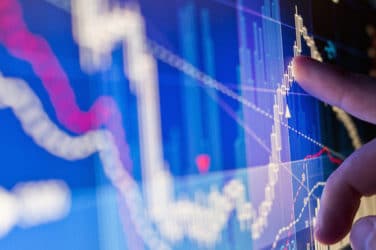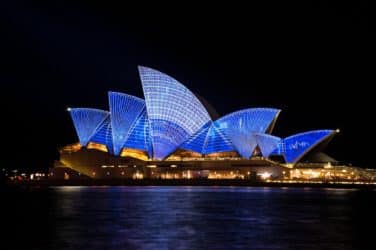Deutsche Börse AG published its results for the second quarter of 2019 yesterday. The company generated net revenue in the amount of €724.8 million, an increase of around 6 per cent compared to the previous year. As part of this, Deutsche Börse achieved structural net revenue growth of approximately 5 per cent, in line with its expectations. Furthermore, higher net interest income from banking business had a slightly positive impact on cyclical net revenue, amid stable equity market volatility compared with the previous year.
Q2/2019: continuing growth as planned. https://t.co/kikifYd7dM
— Deutsche Börse Group (@DeutscheBoerse) July 24, 2019
At €260.0 million, adjusted operating costs were up 4 per cent year-on-year after restatement of the previous year’s figures according to IFRS 16. The increase is mainly due to higher expenses for investments in growth initiatives, new technologies and regulation as well as consolidation effects. Operating costs were adjusted for exceptional effects totalling €31.5 million.
These effects mainly consist of structural measures aimed at improving operating efficiency within the scope of Deutsche Börse’s growth strategy “Roadmap 2020” as well as of costs for business combinations and acquisitions. Adjusted earnings before interest, tax, depreciation and amortisation (EBITDA) was €465.5 million and thus up 6 per cent year-on-year after restatement of the previous year’s figures due to IFRS 16. Adjusted net profit for the period attributable to Deutsche Börse shareholders (net profit) increased by 10 per cent to €288.4 million. Basic earnings per share, adjusted for exceptional effects, rose by 11 per cent to €1.58.
Deutsche Börse generated net revenue of €1,445.6 million for the first half of 2019 – a 5 per cent year-on-year increase. The company achieved structural net revenue growth of approximately 5 per cent, in line with its expectations. In addition, higher key US interest rates largely offset the somewhat lower market volatility. The Group thus achieved adjusted net profit of €580.3 million, up 9 per cent on the previous year. Basic earnings per share, adjusted for exceptional effects, amounted to €3.17 in the first half of 2019 – a 10 per cent increase.
Gregor Pottmeyer, CFO of Deutsche Börse AG, said: “In the first half of the year we were able to increase structural net revenue by 5 per cent, as planned. In addition, net profit rose stronger than net revenue: the 9 per cent growth rate is therefore also in line with the guidance for the full year. Hence, we are confident that we will achieve our goals for 2019.“
Results for Q2/2019
Net revenue for the second quarter of 2019 increased compared to the same quarter of the previous year, by 6 per cent to €724.8 million (Q2/2018: €687.0 million). Except for GSF (collateral management) and the Xetra (cash equities) segments, all segments increased their net revenue – some of them particularly strongly; growth rates in the Clearstream (post-trading) and EEX (commodities) segments were especially strong. In the Clearstream segment, growth was primarily driven by net interest income from banking business, where the Group posted a marked increase to €66.7 million (Q2/2018: €55.0 million). This rise can essentially be attributed to higher interest rates in the US and increased customer cash balances.
At €291.5 million, operating costs were down year-on-year (Q2/2018: €317.2 million). Higher expenditure for investments in growth initiatives, new technologies and regulation, as well as consolidation effects were more than offset by the transition to IFRS 16. Deutsche Börse adjusted the structure of its consolidated income statement for the first quarter of 2019, in accordance with IFRS 16. It no longer includes expenditure for certain leases under operating costs, but is reported as part of depreciation and amortisation, and in the financial result. In the second quarter of 2018, this would have retrospectively affected operating costs in the amount of approx. €12.6 million. It would have increased depreciation and amortisation by approx. €11.8 million, and decreased the financial result by approx. €0.7 million. Exceptional effects totalled €31.5 million in the second quarter of 2019, compared with €54.3 million in Q2/2018, mainly comprising costs for efficiency measures as well as costs for business combinations and acquisitions. Adjusted for these exceptional effects, operating costs decreased to €260.0 million (Q2/2018: €262.9 million). Results from strategic investments amounted to €0.7 million (Q2/2018: €1.4 million).
Deutsche Börse’s EBITDA was €434.0 million for the quarter under review (Q2/2018: €371.2 million). Excluding the exceptional effects set out above, consolidated EBITDA amounted to €465.5 million, a 9 per cent increase compared to the previous year’s figure (Q2/2018: €425.5 million).
Depreciation, amortisation and impairment losses declined to €55.4 million (Q2/2018: €58.4 million). The improvement – in spite of the transition to IFRS 16 – was attributable to extraordinary impairment to the value of a technological infrastructure asset in the second quarter of 2018. Adjusted for this exceptional effect, depreciation, amortisation and impairment losses stood at €54.7 million (Q2/2018: €42.1 million).
The Group’s financial result was €–11.6 million (Q2/2018: €–16.6 million). The improvement was largely due to a reversal of provisions for interest payments on expected tax payments. Due to internal reorganisations, the Group’s effective tax rate decreased to 26.0 per cent (Q2/2018: 27.0 per cent).
Accordingly, net profit stood at €266.9 million (Q2/2018: €210.3 million); excluding the exceptional effects described above, it was €288.4 million (Q2/2018: €261.9 million). Basic earnings per share amounted to €1.46 (Q2/2018: €1.13). Adjusted for exceptional effects, basic earnings per share rose by 11 per cent, to €1.58 (Q2/ 2018: €1.42).
Source: Deutsche Börse





